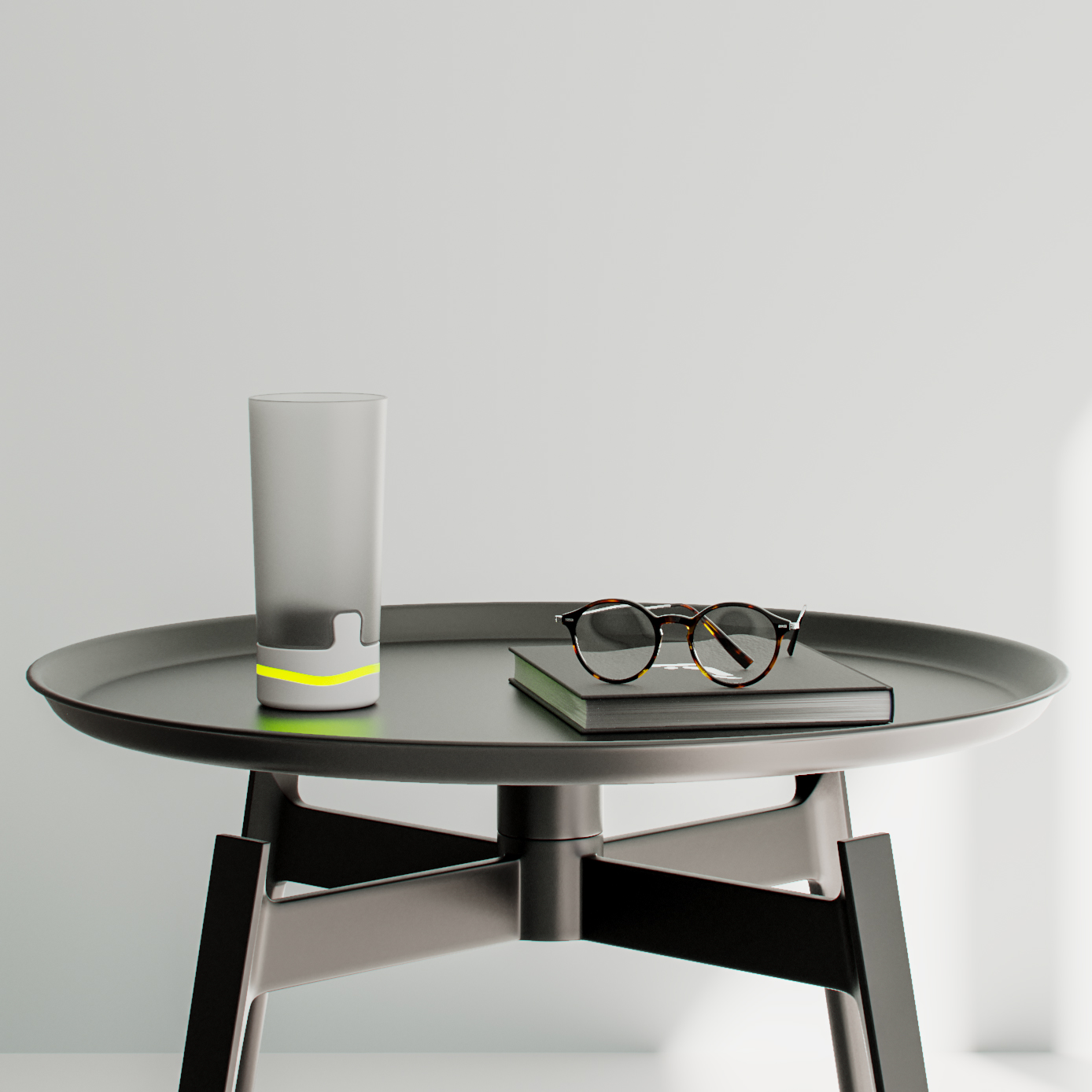For my final year project I decided to investigate the issue of dehydration within the UK's elderly population. The goal of this investigation was to identify the reasons for dehydration being so difficult to diagnose, potential factors leading to such prevalence within the elderly community and not in other age groups, and potentially identify areas in which a product or service could help ease or solve any of these identified factors.
Fusion 360
Solidworks
Keyshot
Photoshop
Illustrator
InDesign
After Effects
Arduino



By not limiting what the user can drink they are able to focus more on their hydration habits, rather than what they can and cant receive feedback from.
Following the research undertaken as part of my dissertation there were several insights gained surrounding the issue of dehydration in the current healthcare system.
Testing required in order to diagnose dehydration is a time consuming and often complex task.
The complexity in testing often means that dehydration is frequently only diagnosed as a result of concurrent or concomitant illness - even if dehydration is a root cause of these illnesses.
Dehydration creates additional strain on healthcare services with 0.5m people a year admitted to hospital for a condition described and considered as “avoidable” by the NHS
It’s estimated that 90% of those suffering from dehydration are living at home - undiagnosed and untreated.
Between 2018-2019 in the UK 80% of those diagnosed with dehydration, and dehydration related illnesses, were are over the age of 60.
Lack of correct knowledge surrounding ideal fluid intake resulting in unintentionally harmful hydration habits.
Symptoms become less obvious with age potentially leading to dehydration without realisation.
Confusion and forgetfulness resulting in infrequent and insufficient hydration.
Be mindful of the barrier to hydration created by arthritis and a reduced dexterity, ensuring that those with reduced physical ability are still able to fully utilise any potential solutions.
Easily communicate feedback for the user in a non-complex fashion. Users within the 60+ age bracket may have a vastly different understanding and experience with technology and so simple and easily read feedback mechanisms will have to be utilised.
With the aim of reducing the strain on the NHS, the product needs to help the user while maintaining their independence. A solution for the home that requires coordination with healthcare professionals simply moves the point of strain from healthcare institutions to the individual.



